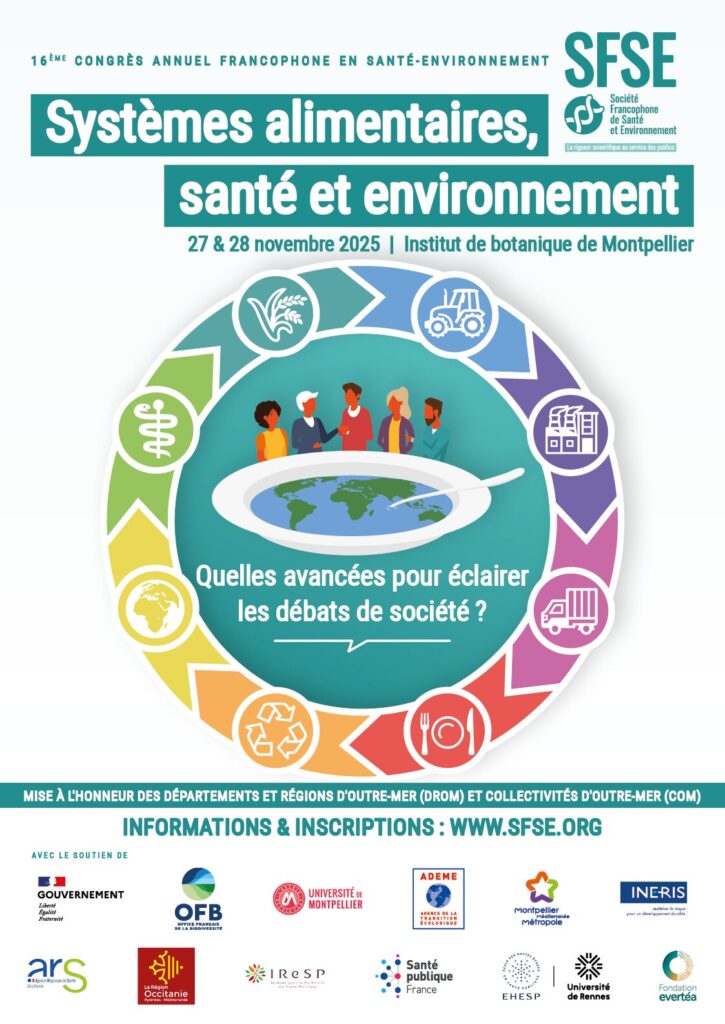Food systems, health, and the environment: what advances can inform societal debates?
This event has passed!
Nutrition is a key factor in the health of living beings throughout their lives. In humans, numerous epidemiological studies have established that a healthy, sufficient, balanced, and varied diet is essential for the physical and mental health of populations by providing the energy necessary for the body to function, enabling growth and strengthening immunity, promoting fertility, and ensuring proper aging conditions. Conversely, a diet that does not meet these criteria contributes significantly to the development of most chronic diseases such as cancer and cardiovascular, metabolic, and neurological diseases.

Furthermore, most food systems—from resource production to waste, including processing, packaging, transportation, distribution, etc.—have short-, medium-, and long-term consequences on deforestation, soil and water resource degradation, biodiversity loss, and climate change, jeopardizing the very goal of food security and sovereignty that we all desire.
Finally, several studies have highlighted the negative impacts and hidden costs of our food systems on health, the environment, and the economy (between 8 and 12% of each country's GDP according to the FAO).
Given that agricultural, food, economic, health, and environmental issues are closely interlinked, this situation is no longer sustainable.
To address these findings, transforming food systems to make them sustainable, healthy, and environmentally friendly is not a choice but a necessity that must be supported by societal, economic, and political change.
This conference will be designed using a systemic approach combining the upstream and downstream parts of the food chain, supply and demand, with a One Health perspective. Its objectives are to:
- Establish a state of knowledge on the benefits and risks of food systems for health and the environment;
- share innovative or inspiring practices, whether individual or collective, that reduce risks and maximize benefits to the health of living organisms, at all levels considered;
- define ways to capitalize on this knowledge and make it accessible to as many people as possible.
Participants from various sectors, disciplines, and communities will be mobilized. The organizers will also set up a space dedicated to formulating collective recommendations for decision-makers.
Receive a weekly summary of the UM agenda
* By entering your email address, you agree to receive a weekly summary of the UM calendar by email and acknowledge that you have read ourprivacy policy. You can unsubscribe at any time using the unsubscribe linkor by contacting us by email.
